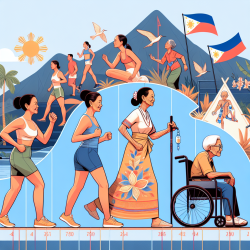Introduction
In today's rapidly evolving educational landscape, the principles of academic freedom are under scrutiny. The research article "Threats to Academic Freedom in Higher Education" by Patrick M. Garry explores the impact of cancel culture on academia. As educators, particularly those providing online therapy services like TinyEYE, understanding these dynamics can enhance professional practice and ensure a nurturing learning environment.
Understanding Cancel Culture in Academia
Cancel culture refers to the practice of withdrawing support for public figures or institutions after they have said or done something considered objectionable or offensive. In academia, this often translates to the suppression of dissenting views, leading to a chilling effect on free speech and academic inquiry. The research highlights how this culture can undermine the core values of academic freedom, which are essential for fostering a diverse and open educational environment.
Implications for Practitioners
For practitioners in the field of education, particularly those involved in online therapy, understanding the implications of cancel culture is crucial. Here are some ways to navigate these challenges:
- Promote Open Dialogue: Encourage open discussions among students and colleagues. Create a safe space where diverse opinions are respected and valued.
- Stay Informed: Keep abreast of the latest research and debates surrounding academic freedom. This knowledge will empower you to advocate for policies that support free expression.
- Model Critical Thinking: Demonstrate critical thinking and encourage students to question assumptions. This approach fosters a culture of inquiry and resilience against ideological conformity.
- Engage in Professional Development: Attend workshops and seminars that focus on academic freedom and related issues. These opportunities can provide valuable insights and strategies for maintaining an open educational environment.
Encouraging Further Research
While the current research provides a comprehensive overview of the challenges posed by cancel culture, further exploration is necessary. Practitioners are encouraged to engage in research that examines the impact of these dynamics on specific educational settings, such as online therapy. By contributing to the body of knowledge, educators can develop more effective strategies to uphold academic freedom.
Conclusion
In conclusion, the threats to academic freedom in higher education are real and require proactive measures from educators. By promoting open dialogue, staying informed, modeling critical thinking, and engaging in professional development, practitioners can navigate the challenges posed by cancel culture. To read the original research paper, please follow this link: Threats to Academic Freedom in Higher Education.










